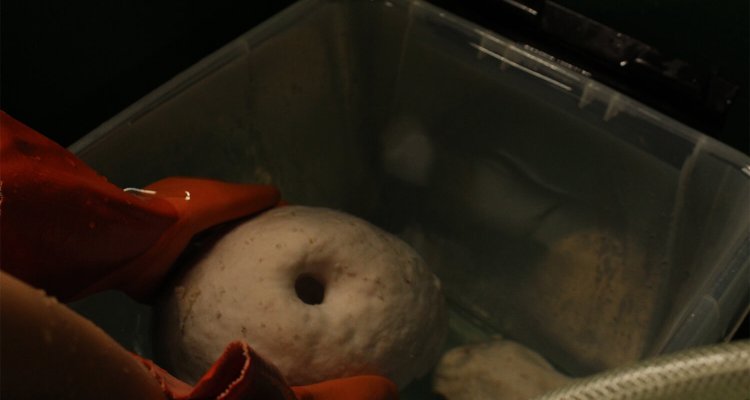
Project
Marine Sponge Cell Biotechnology
Marine sponges are a prolific source of bioactive compounds with pharmaceutical potential. However, sustainable supply for drug development necessitates in vitro production. We are developing scalable sponge cell culture systems, utilising an optimised, amino acid-rich medium to enhance cell proliferation and establish continuous cell lines. This project aims to characterise and optimise these cell lines, including growth kinetics, medium requirements, and shear sensitivity. This research will establish a foundation for large-scale production of sponge-derived natural products, facilitating their application in drug discovery.
Background
Animal cell cultures are a cornerstone of medical biotechnology, producing vital pharmaceuticals like monoclonal antibodies and vaccines. While the concept of using cell cultures for drug production is well-established, sponge cell cultures present unique challenges. Unlike mammalian or insect cell cultures, which are derived from single cell types within organs or tissues, sponges lack true organs and possess diverse cell types originating from stem cells. These cells exhibit remarkable plasticity, capable of both differentiation and de-differentiation.
Despite these complexities, sponge cells can divide and produce bioactive compounds in culture, making them a promising sustainable source for pharmaceutical applications. Over the past three decades, research has steadily advanced sponge cell culture methods, culminating in the development of the amino acid-optimised M1 medium in 2018. This breakthrough enabled limited cell population doublings in various sponge species. Further refinements led to the OpM1 medium, which facilitated the establishment of the first continuous sponge cell line from Geodia barretti, demonstrating extensive cell division over numerous passages.
However, challenges remain. Cultures often plateau at low cell densities, hindering compound production, and the specific components of M1 and OpM1 that support continuous division are not fully understood. Moreover, some species, like Axinella corrugata, have proven difficult to culture, despite their potential for producing valuable compounds. To address these limitations, researchers are exploring hybridoma technology, fusing cells from different sponge species to create hybrid cells that both divide and produce desired compounds. This approach offers an alternative pathway for species where traditional cell line development is challenging, ultimately aiming to unlock the full potential of sponge cell cultures for drug discovery.
Project description
In the search for new drugs, marine sponges are one of the most prolific sources of marine-derived bioactive compounds with potential pharmaceutical applications. However, current development of these compounds into biopharmaceuticals is blocked by a lack of supply, since it is not environmentally feasible to obtain enough material from field collections for clinical trials. In vitro synthesis may provide a solution to this supply bottleneck, by culturing sponge cells that produce the compound of interest in a large-scale bioreactor system.
Our research group has developed an amino acid-optimised sponge cell culture nutrient medium (called M1) that stimulates several cell population doublings of cells from several sponge species. Further optimisation of the medium allowed for the establishment of the first continuous sponge cell line with more than 40 passages of the species Geodia barretti. However, current sponge cell culture research has been performed only on a small scale. With this project we aim to design a scalable cell culture-based production process for sponge-derived bioactive compounds.
The first step will be the development of sponge cell lines that produce compounds of interest. The second step is the optimisation of the cell lines by characterising medium requirements, suspension growth, growth and death kinetics, oxygen requirements and shear sensitivity. In addition, sponge hybridoma technology will be optimised to overcome the lack of cell division in some species. The proposed research will form the basis for sponge cell culture scale up to deliver the supply of sponge-derived natural products needed for drug development.